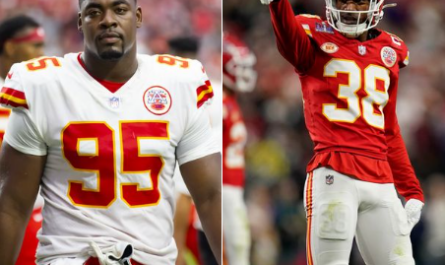Brett Favre’s Legacy in Green Bay and its Impact on Aaron Rodgers
When Aaron Rodgers took over as the starting quarterback for the Green Bay Packers in 2008, he had enormous shoes to fill. For the previous 16 seasons, Brett Favre had been the face of the franchise, leading them to remarkable success and establishing Green Bay as a perennial playoff and championship contender. However, Favre’s legacy extended beyond just his on-field accomplishments. His tenure with the Packers laid the foundation for the organization’s culture of excellence and helped groom Rodgers to eventually surpass Favre as one of the greatest quarterbacks in franchise history.
Creating a Championship Culture
From the moment Favre arrived in Green Bay in 1992, he transformed the Packers from an also-ran team to legitimate Super Bowl contenders. In his first season as the starter, Favre led the Packers to an NFC Championship appearance. Over the next decade and a half, he would take them to two Super Bowls, winning it all in Super Bowl XXXI over New England. Under Favre’s leadership, the Packers made the playoffs 9 times and consistently competed deep into the postseason.
This sustained success established Green Bay as one of the NFL’s premier franchises and ingrained a winning mentality within the organization. Players who came through the Packers system during Favre’s tenure, including Aaron Rodgers, grew accustomed to competing for championships on an annual basis. The standard was set incredibly high by Favre – anything short of a playoff berth or deep playoff run was considered a failure. This championship culture and expectations of excellence would remain long after Favre’s departure.
When Rodgers took over as the starter in 2008, the expectation was that Green Bay would continue its run of success uninterrupted. Thanks to Favre laying the foundation, Rodgers inherited an organization that expected and demanded nothing less than a championship. The pressure was immense, but Rodgers was well prepared by the culture in place to thrive under those expectations. In many ways, Favre bequeathed upon Rodgers the invaluable gift of competing for championships from the very start of his career.
Leaving the Starting Role Open
Despite Favre’s immense success, the writing was on the wall for the eventual transition to a new quarterback. By the time the 2005 NFL Draft rolled around, Favre was 36 years old and had accrued a significant injury history over his 13 NFL seasons. It made all the sense in the world for the Packers to select a young quarterback who could be groomed as Favre’s successor. Their selection of Aaron Rodgers with the 24th overall pick signaled the beginning of the end for Favre’s tenure in Green Bay, even if no one knew it at the time.
Over the next three seasons, Rodgers sat behind Favre on the depth chart and learned from one of the game’s all-time greats. But tensions arose as Favre continued playing at a high level and was reluctant to pass the torch. After a brief retirement and un-retirement in 2008, Favre was traded to the New York Jets, opening the door for Rodgers to finally take over as the Packers’ starting quarterback.
Without Favre’s eventual departure from Green Bay, it’s unlikely Rodgers ever gets his shot as the full-time starter. Favre may have continued to block Rodgers’ path had he stayed in Green Bay longer. By leaving when he did, even if it wasn’t on the best of terms, Favre created the opportunity for Rodgers to step into the spotlight. His legacy with the team was cemented, and it was time for a new era to begin.
Indirect Mentorship
While Favre and Rodgers’ relationship had its share of ups and downs, particularly towards the end in Green Bay, Rodgers undoubtedly learned a great deal from being Favre’s understudy for three seasons. As a raw prospect out of Cal, Rodgers had the unique opportunity to observe one of the most talented and instinctual quarterbacks to ever play the game up close on a daily basis.
Rodgers studied Favre’s meticulous film work, preparation routines, and work ethic. In practice, he analyzed Favre’s throwing mechanics, pocket presence, and ability to improvise on the fly. Come gamedays, Rodgers dissected how Favre diagnosed defenses and made split-second decisions. It was an invaluable apprenticeship, even if Favre wasn’t necessarily taking Rodgers under his wing as a mentor.
Rodgers paid close attention to the intangible aspects of Favre’s game as well, like his leadership, confidence, and will to win. These are qualities Rodgers would go on to embody himself. While their relationship was far from rosy, Rodgers undoubtedly benefited immensely from observing Favre up close for three seasons. It allowed him to develop his skills and understanding of the quarterback position before taking over the reins. Favre’s indirect mentorship through example was hugely influential in Rodgers’ preparation.
Lowering Expectations (Unintentionally)
As great as Favre was in Green Bay for over a decade, the latter stages of his tenure were marked with inconsistency and frustration. From 2005-2007, Favre and the Packers endured some disappointing playoff exits and saw their championship window closing. Favre’s production began declining from its peak, and controversial off-field issues like his addiction troubles came to light. Green Bay fans grew impatient waiting for the next title, and doubts emerged about Favre’s ability to deliver one more ring.
This may have unintentionally made the transition to Rodgers a bit smoother. When Rodgers took over full-time in 2008, expectations were not as astronomical as they could have been had Favre just retired after a Super Bowl victory or two. Rodgers was stepping into sizable shoes but with a fanbase ready for change and not entirely confident in Favre anymore. It allowed Rodgers more time to develop without being judged against Favre’s loftiest accomplishments. A few early playoff losses didn’t trigger the same alarm or criticism it may have if Favre just left on top.
Rodgers was still expected to win but had more leeway in his first few seasons due to Favre’s decline. It created less pressure for Rodgers to be an immediate superstar, which gave him room to grow into the role without as much second-guessing from the fans and media. Favre’s ups and downs in his final years in Green Bay paradoxically made the transition to Rodgers a little smoother than it may have otherwise been.
Conclusion
When looking back on Aaron Rodgers’ legendary career with the Packers, it’s impossible to overlook the role Brett Favre played in laying the foundation. From establishing a culture of winning to creating the opportunity for Rodgers to start to providing an indirect apprenticeship, Favre’s legacy in Green Bay paved the way for Rodgers’ rise to greatness.
Rodgers inherited an organization accustomed to competing at the highest level year in and year out. He learned invaluable lessons from observing Favre up close for three seasons. And Favre’s decline at the end may have eased Rodgers into the starting job without unreasonable expectations. All these factors that stemmed from Favre’s tenure combined to groom Rodgers into the all-time great quarterback he has become.
While their relationship had its bumps, especially at the end, Rodgers owes a debt of gratitude to Favre for all he did to set the stage. Favre transformed Green Bay into Titletown and a quarterback’s dream destination. His 16 illustrious seasons established a standard of excellence Rodgers has upheld and surpassed. Ultimately, Favre’s legacy paved a golden path for Rodgers to follow en route to a likely spot in Canton one day as well. The Packers’ dynasty was passed down from one generation of quarterback greatness to the next.



